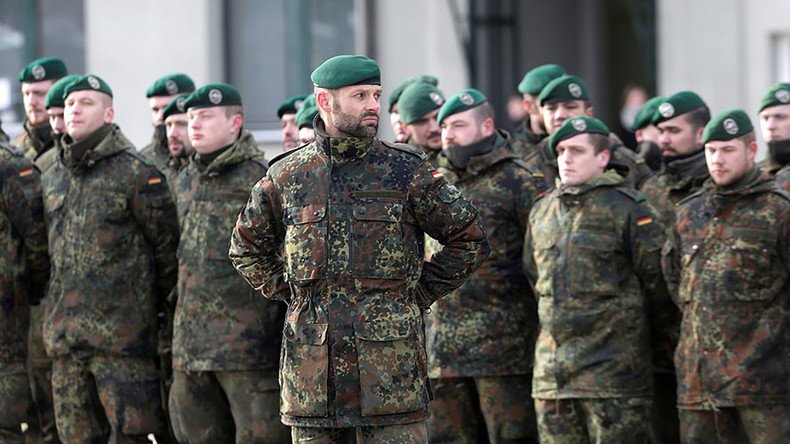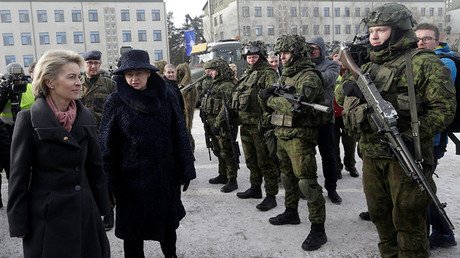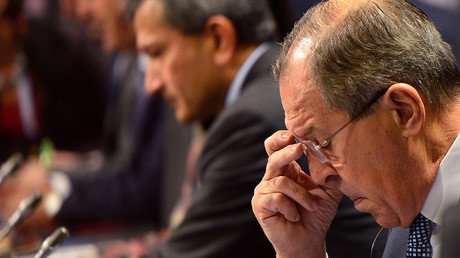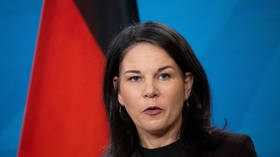German soldiers to remain in Baltics ‘as long as needed’ – FM

German military presence will remain in the Baltic States ‘as long as needed’, said German Foreign Minister Sigmar Gabriel as he visited the country’s troops in Lithuania. Gabriel also accused Russia of “irrational” build-up at the border.
Gabriel was visiting the 400 German troops stationed in the town of Rukla, who were deployed to Lithuania as part of NATO’s buildup along the Russian borders. The first German soldiers started arriving in Rukla in early February, with the contingent expected to reach 1,200 in spring.
According to NATO, the move is aimed at reassuring the bloc’s Eastern European members in view of Russia’s reunion with Crimea in 2014 and its alleged involvement in the Ukrainian conflict, which Moscow denies.
The German minister stressed that the country’s troops will stay at the base in Lithuania “as long as needed” and mentioned the presence of Russian troops at the border.
"The military potential that the Russian Federation has built up here at the border is completely irrational in my view because there is zero threat emanating from these countries," Gabriel told reporters.
Russia has in its turn long criticized the buildup of NATO forces on its doorstep.
Following the deployment to Lithuania, Russia’s Deputy Foreign Minister Aleksey Meshkov said that “for the first time since World War II we see German soldiers along our borders,” warning that NATO’s actions “gravely increase the risk of incidents.”
In July 2016, NATO members agreed to the “biggest reinforcement since the Cold War,” posting four rotating multinational battalions in Eastern Europe.
READ MORE: British NATO General wants cyber-attacks to trigger article 5 collective response
In January, 2,800 pieces of US military hardware and 4,000 deployed to Poland, Bulgaria, Romania and Germany, were the operation’s headquarters are located. Germany, Canada and Britain are also sending battalions of up to 1,000 troops each to Estonia, Latvia and Lithuania as part of the buildup.
German Defense Minister Ursula von der Leyen was visiting an air base in Estonia’s Amari, assuring the Baltic States of Berlin’s commitment to protect them.
"Estonia, and our friends from Lithuania, Latvia and Poland, can rely on us. We Germans know what it means to be at the eastern border and to have the solid protection of the alliance," von der Leyen said.
On Friday, German Federal Government Commissioner for Disarmament and Arms Control Patricia Flor expressed concern over Iskander-M nuclear-capable missiles stationed by Russia in its region of Kaliningrad, bordering Poland and Lithuania.
“I believe that we are now in the phase of concern and anxiety regarding the European security. Of course, the deployment of Iskander-M missiles doesn’t contribute to building trust, because the missiles that are placed there, can reach Berlin,” Flor told Interfax.
According to Flor, Germany will only respond to the Iskander-M deployment in the framework of NATO.
“It’s important for us to agree and implement all the decision made within NATO at the same time, continuation of dialogue with Russia is also important,” she said.
Moscow moved the Iskanders to Kaliningrad after last summer’s activation of a US missile shield base in Romania, which is intended to form a part of the larger Aegis-based missile defense system in Europe.














